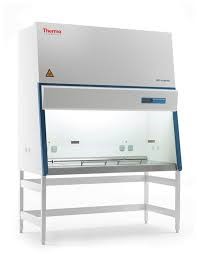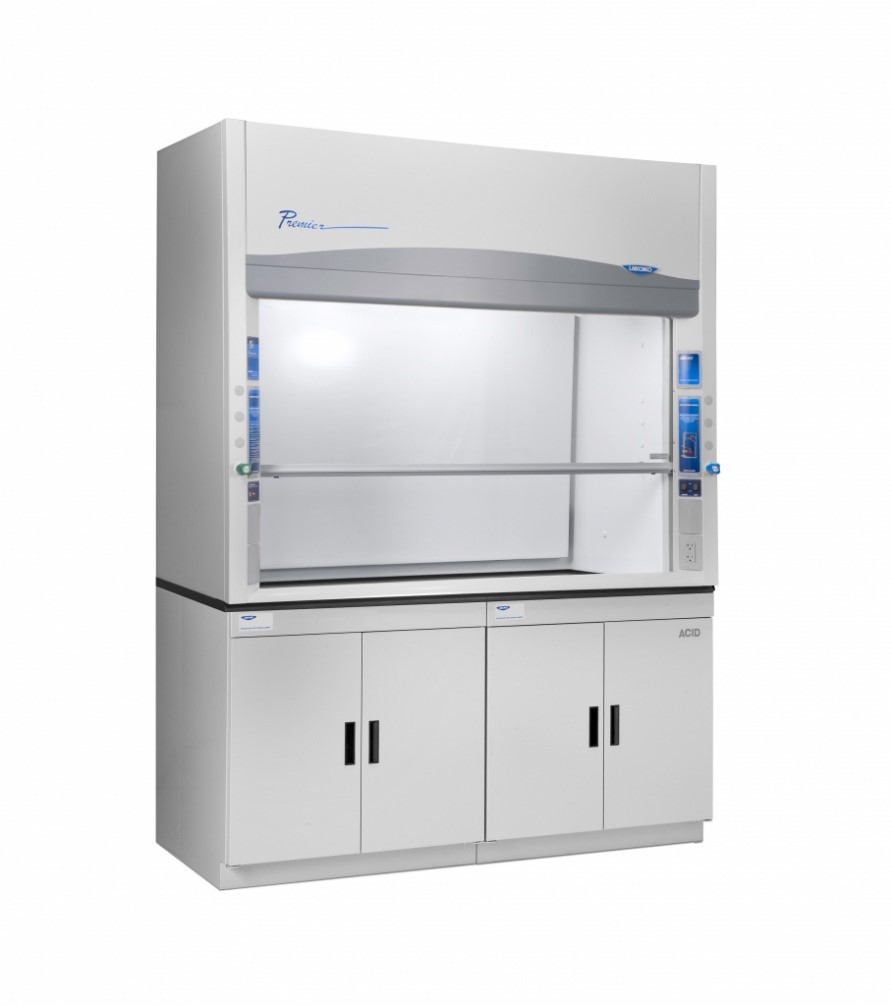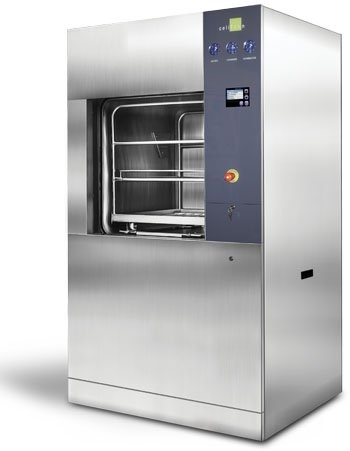The Biosafety Office maintains an active inventory of all Biosafety Cabinets, Laminar Flow Hoods/Clean Benches, Chemical Fume Hoods, and Autoclaves across campus to better assist in the management and maintenance of campus equipment.
Bio Safety Cabinets (BSC)

Certification
Biosafety cabinets must be inspected and certified on an annual basis by a certified vender. Annual certification ensures that the cabinet is in good working condition and will keep the individual, the environment, and depending on the class the product/sample safe. If your cabinet is new or otherwise has not been inspected within the last year, please reach out to the Biosafety Office for guidance, but some of the usual vendors that service our campus include:
Moving/Relocation of BSCs
Biosafety cabinets must be decontaminated when they are moved to ensure no biological agents are released during transport. Decontamination is performed by the vender chosen by the lab using vapor hydrogen peroxide. The BSC must be recertified once it is installed in its new location. Laminar flow hoods/clean benches do not require decontamination but do require recertification once they are moved. When planning your equipment’s move contact the Biosafety Office for guidance and logistical assistance. Labs are responsible for arranging the movement of cabinets with University Facilities Management. If the cabinet is destined for surplus, please remove biohazard stickers after the cabinet has been fully decontaminated by vendor services and contact surplus for pick-up.
Repairs/Maintenance
If your BSC or laminar flow hood/clean bench fails or stops working correctly, contact us for assistance if needed in scheduling repairs. After repairs/maintenance, the unit will need to be recertified to ensure it’s working as designed. Costs associated with repairs and recertification are the responsibility of the lab. Unit that fail certification or otherwise not working properly must be labeled with signage to prevent work from being conducted, to prevent worker exposure.
Fume Hoods

Annual Inspection
EHS inspects fume hoods annually to ensure basic functions and adequate air flow. New fume hoods and fume hoods that have been relocated must be certified to ASHRAE 110 by a third-party contractor. Reach out to our Chemical Safety team for information on contractors or additional information.
Repairs/Maintenance
Contact us if your unit needs repairs. The Biosafety Office will coordinate the needed work with facilities so repairs/maintenance can be performed. After repairs are completed, Biosafety will confirm verify the repair by inspecting and recertifying for use.
Autoclaves

Preventive Maintenance and Repairs
Due to the extreme temperatures and pressures an autoclave must undergo to achieve sterilization, wear and tear on units can be considerable thus demanding sufficient preventive maintenance. If your unit is in need of repair, a trained vendor will need to inspect the unit to determine what work must be performed to get the unit back up and running. Be prepared to provide the location of the unit and be able to describe the problem it’s experiencing, if known. The person responsible for maintenance of the autoclave will be responsible for ordering in the work. The Biosafety Office can assist in finding responsible persons if needed, and assisting in coordinating a repair by request.
General Use Tips
Biohazard waste from BSL-1 and 2 labs may be disposed of directly into biohazardous waste biohazardous waste boxes lined with red biohazard bags. These boxes are decontaminated offsite via incineration/autoclaving, thus autoclaving onsite is redundant and energy inefficient.
If your lab needs to autoclave waste, be sure to:
• Use a tray to contain your waste
• Use autoclavable biohazard bags
• Be trained on proper autoclave use






